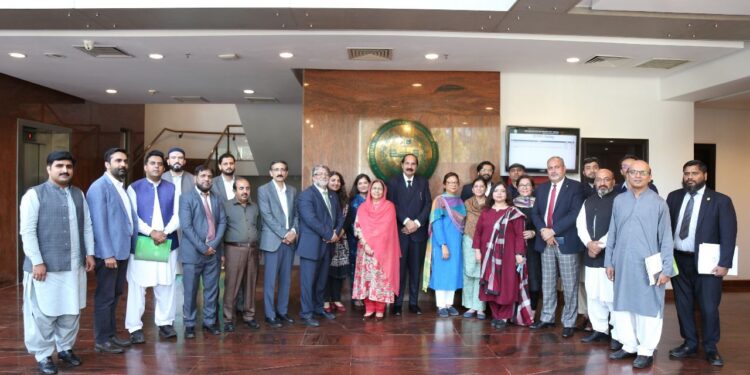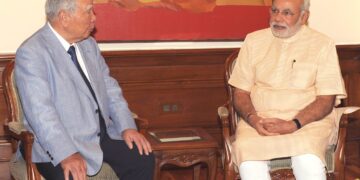Islamabad, November 22, 2024 – A high-level Parliamentary Roundtable on “Industrially Produced Trans-Fatty Acids (iTFAs), Partially Hydrogenated Oils (PHOs), and Human Health” was held at the Pakistan Institute for Parliamentary Services (PIPS). The event, organized collaboratively by Pakistan Youth Change Advocates (PYCA), Center for Peace and Development Initiatives (CPDI), and PIPS under the TRANSFORM Pakistan campaign, brought together parliamentarians, health experts, civil society representatives, and regulatory authorities to discuss urgent measures for protecting public health through robust regulation of iTFAs and a legislative ban on the production and distribution of PHOs.
The session commenced with welcome remarks from Mr. Muhammad Rashid Mafzool Zaka, Executive Director of PIPS, who emphasized the institute’s commitment to bridging civil society and parliamentarians for meaningful discourse. “PIPS is happy to facilitate this first important dialogue between legislators and public health experts on the eradication of industrial trans fats and PHOs from our dietary sources to ensure food safety across Pakistan,” he said.
In her opening remarks, PYCA’s Executive Director Ms. Areebah Shahid set the agenda, highlighting the alarming health risks associated with industrial trans fats and the critical need for regulatory and legislative action. “While PSQCA has made some progress in the past to regulate a few food categories, it is important to ensure that all foods are covered under a mandatory governmental iTFA regulation and legislators take the lead in banning the primary raw material for the production of iTFAs, i.e., PHOs. The latter is the main reason for initiating today’s conversation,” she noted.
The first session of the roundtable provided insights into global and local perspectives on iTFAs and PHOs. Dr. Tausif Janjua from the Ministry of National Health Services, Regulations, and Coordination (MNHSR&C) delivered the keynote address. “58% of all death in Pakistan annually are attributed to non-communicable diseases (NCDs) and iTFAs are a leading contributor to NCDs such as cardiovascular diseases, diabetes, stroke, Alzheimer’s, obesity and various cancers.” He underlined the pressing need for comprehensive regulatory measures to reduce the burden of NCDs caused by iTFAs. This was followed by an address from Mr. Munawar Hussain, In-country Coordinator for the Global Health Advocacy Incubator (GHAI), who presented international best practices. “63 countries have already adopted the best practice policy to curb iTFAs in food supply through regulatory or legislative measures. Pakistan remains in WHO’s less restrictive list, which means some progress has been made but still need to ensure significant measures to eliminate iTFAs from all foods. Pakistani policy makers should limit iTFAs in all foods and enact a complete ban on production and distribution of PHOs for optimum health outcomes.” At the end of the first session, Dr. Shazia Sobia Aslam Soomro, Member of the National Assembly, acknowledged the issue and pledged her support. “I wish this had been brought to my notice earlier. Nonetheless, now that it has, I will ensure that I play my role for food safety across Pakistan,” she said.
The second session shifted focus to strengthening Pakistan’s regulatory framework. Civil society leaders, including Mr. Mukhtar Ahmed, Executive Director of the Center for Peace and Development Initiatives, highlighted the need for strategic partnerships. “A health caucus comprising doctors within the legislature and other public health advocates should be formed to streamline efforts under the health and nutrition paradigm,” he proposed. Dr. Saba Amjad, CEO of Heartfile, pointed out the disparities in industrial practices. “Many industries already have the technology to produce trans fat-free foods and they are producing them for export. However, the items they sell inside Pakistan are laden with industrial trans fats,” she stated.
Dr. Noor Hassan Kakar, Director Technical at the Balochistan Food Authority, stressed the need for enhanced enforcement. “90% of the ghee samples tested by Balochistan Food Authority were found to be non-compliant with iTFA standards. We are doing our best to enforce the standards but we are understaffed and under-resourced, which restricts our ability to monitor food only in a few major cities,” he said. Echoing the concern, Mr. Ashraf Palari, Director, PSQCA, highlighted the challenges faced by his organization. “While under-staffing is a significant issue, PSQCA remains committed to setting appropriate standards to ensure safe food for all Pakistanis,” he said.
Adding to the discussion, Dr. Nikhat Shakeel Khan, Member of the National Assembly and Parliamentary Secretary for the Ministry of Science and Technology, affirmed her ministry’s role. “Today’s discussion was most relevant for me. I will ensure that the Ministry of Science and Technology and PSQCA expedite the regulation process,” she committed. Dr. Zulfiqar Bhatti, MNA, emphasized the need for awareness alongside legislation. “Along with legislation, we must make every stratum of society aware of the harms of industrial trans fats so they can also take measures to protect themselves,” he said.
The event concluded with a call to action by the TRANSFORM Pakistan partner organizations, urging all stakeholders to accelerate efforts toward eliminating iTFAs and PHOs from Pakistan’s food supply. Participants unanimously agreed on the need for strengthened enforcement mechanisms, the adoption of global best practices, and comprehensive legislative measures to address this critical public health challenge.

















